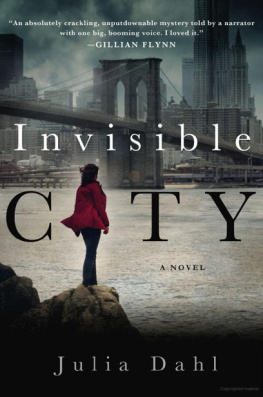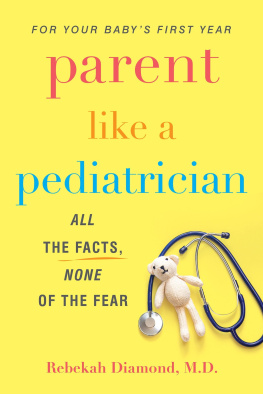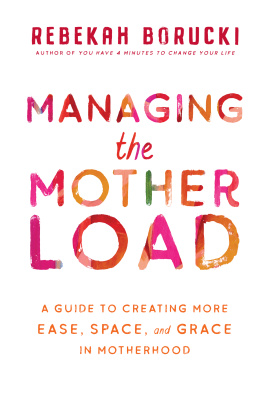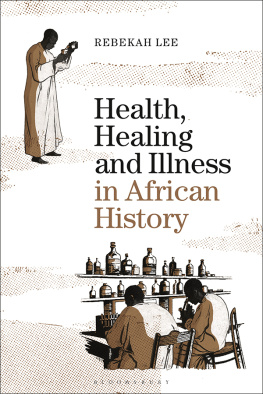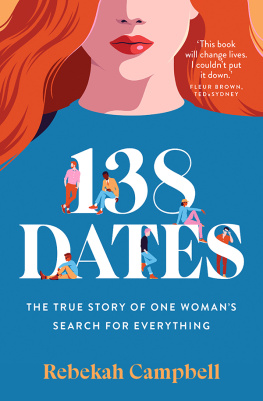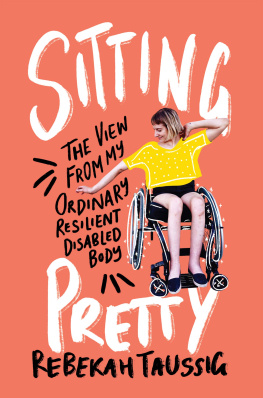FRIDAY
CHAPTER ONE
I was in Chinatown when they called me about the body in Brooklyn.
They just pulled a woman out of a scrap pile in Gowanus, says Mike, my editor.
Lovely, I say. So Im off the school? Ive spent the past two days pacing in front of a middle school, trying to get publishable quotes from preteens or their parents about the brothel the cops busted in the back of an Internet caf around the corner.
Youre off, says Mike.
The rest of the press is on the scene when I arrive at the gas station across from the scrap yard. Pete Calloway from the Ledger is baring his crooked teeth at the NYPDs Deputy Commissioner of Public Information, or as reporters call him, DCPI. DCPI is six inches taller and seventy pounds heavier than Pete. Its barely twenty degrees out and Petes got his hoodie up, his shoulders hunched against the cold, but DCPI is hatless, scarfless, gloveless, coatless. His uniform jacket collar is pulled up, two inches of starched wool-blend against the icy wind.
Were hearing she was found without clothes, says Pete. Can you confirm that?
DCPI looks over Petes head and rubs his hands together. Behind him, in the scrap yard along the canal, two excavators stand frozen against the sky; the grapples attached to their long arms sway slowly, thin scraps of metal hanging from their teeth.
Pete stares up at the cop, who is ignoring him. Both of them are ignoring me. Ive seen Pete at multiple crime scenes, but weve never introduced ourselves. Mike and the rest of the editors think Calloway is some kind of crime-reporting savant. But it seems to me, after just a few months at scenes with him, that all he is is single, dogged, and nosy. I catch his eye and smile a smile I mean to indicate camaraderie, but he doesnt respond. Drew Meyers from Channel 2 slides up, cashmere coat to his shins, leather gloves, wine-colored scarf. DCPI loves him.
Drew, he says, grasping his hand like an old friend.
Cold enough for you? says Drew. DCPIs ears are absurdly red. His nose and cheeks and neck glow pink. So whats going on?
DCPI lowers his voice. Female.
Is she still in there? asks Drew. Pete and I step in to listen.
Dont have that, says DCPI.
The M.E. van hasnt been here, says Pete.
Drew looks at DCPI, who confirms Petes statement with silence.
Was there a 911 call? asks Pete.
Yes, says DCPI.
What time? I ask.
DCPI looks down at me. Can you let me finish, please?
I nod.
A call came in to emergency services this morning, reporting that workers loading a barge on the canal had found what they thought was a female body. We are in the process of determining identity.
Its definitely female? asks Pete.
DCPI nods.
Drew furrows his brow, doing a good impression of someone empathizing. He folds his notebook shut, though he didnt write down a word of what DCPI said, shakes the cops hand, then turns and walks to the Channel 2 van, his coattails flapping behind him.
DCPI stays put, and so do I. There are several DCPI cops that work crime scenes. I know two or three by sight, and have ones name, but Ive never seen this man before. Can I get your name? I ask.
He looks down at me. Can I see your press card?
I dig my stiff fingersexposed by the fingerless gloves that note-taking necessitatesinto my coat and manipulate the laminated New York Tribune badge from beneath several layers of clothing. My skin scrapes against the metal zipper as I pull it out and present it.
You dont have a press card.
Hes talking about the official credentials that the NYPD gives to reporters. If you want the press card, you have to submit six articles with your byline on them that prove you cover spot news in the city and routinely need to get past police lines. The card doesnt actually get you past police lines, but it gives you a small measure of legitimacy in the eyes of whichever DCPI youre dealing with. I applied for the card right before Thanksgiving, but I havent heard anything. I called after the New Year and the officer who answered the phone at the public information office told me to wait.
I applied in November, I tell DCPI. Im still waiting to hear.
He nods.
Is she still in there? I ask.
Youll get information when I get information, he says, sounding bored.
I turn away. Police tape stretches across the wide gravel entrance to the scrap yard, fastened to a tall iron fence on one end and the bow of a long canal boat on the other. There is a trailer that seems to serve as the sites office. Officers stand at ease, protecting the perimeter. Men in hard hats, whom I take to be employees of the yard, stand pointing for men in suits, whom I take to be detectives. The workers seem to be motioning between the grapple cage above their heads and the mountain of scrap rising fifty feet beside them. I follow to where their fingers are pointing, and see a leg.
I call in to the city desk and ask for Mike. I give him the information DCPI gave me.
Shes still up there, I tell him. You can see her leg.
Her leg? I can hear him typing. What else? Hold on Bruce! Hes shouting to the photo editor. Bruce, whos out there for you? Rebekah whos there for photo?
I havent seen anybody.
Hold on. He clicks off. I try to communicate with Mike in these conversations. Every shift its the same: he tells me where to go and why; I tell him what I find. Ive seen him in person twice in six months. Hes fifty pounds overweight, like most of the men in the newsroom, but unlike most of them he is polite and soft-spoken. When I walked into the office after three weeks of speaking several times a day, he said hello and avoided eye contact, then turned back to his computer.
I rock back and forth in my boots. Im standing in the sun, and Ive got fleece inserts over socks over tights, but I still cant feel my toes. Mike comes back on the phone.
Johnnys coming.
Johnny from Staten Island?
Yeah. Larry is working sources at 1PP. Larry Dunn is the Trib s longtime police bureau chief. Talk to somebody from the scrap yard. Were hearing a worker called it in. Is Calloway there?
Yeah.
Dont lose sight of him.
Got it.
Im going to the meeting with a woman in a scrap heap. We need an ID.
Im on it, I say.
The rest of the TV newspeople start rolling up in their vans. The on-air reporters always ride shotgun, camera techs squat with the equipment in the back. Gretchen Fiorello from the local Fox station steps out carrying her battery-powered microphone. Shes in full makeup, eyes lined and shadowed, lipstick just applied, and her strawberry blond hair is coiffed so that it lifts as one entity against the wind. Shes wearing panty hose and slip-on heels and a matching scarf and mittens set.
DCPI has nothing new, and the men at the scrap heap are still staring up at the steel fist with the body in it, so I push into the gas station convenience store to warm up. Working stakeouts or active scenes in the cold requires a tedious amount of energy. Hot coffee or tea warms you best from the inside out, but if youve got your hands wrapped around a cup, you cant take notes. Plus, the more you drink, the more likely it is you have to find a bathroomwhich usually isnt easy. I shake powdered creamer into a white cardboard cup and pour myself some coffee from a mostly empty pot sitting on a warmer. I pay, then stand beside the front window and sip. From where Im standing I can see most of the scrap yard.
My phone rings. Its my roommate, Iris.
Where are you? she asks. Iris and I both majored in journalism at the University of Central Florida, but she works in a cubicle on Fifty-seventh Street and Im never in the same place for more than a couple hours.
Right by home, I say. We share an apartment just a few blocks away. This is the first time Ive ever been on a story in Gowanus. The canal.
Next page
